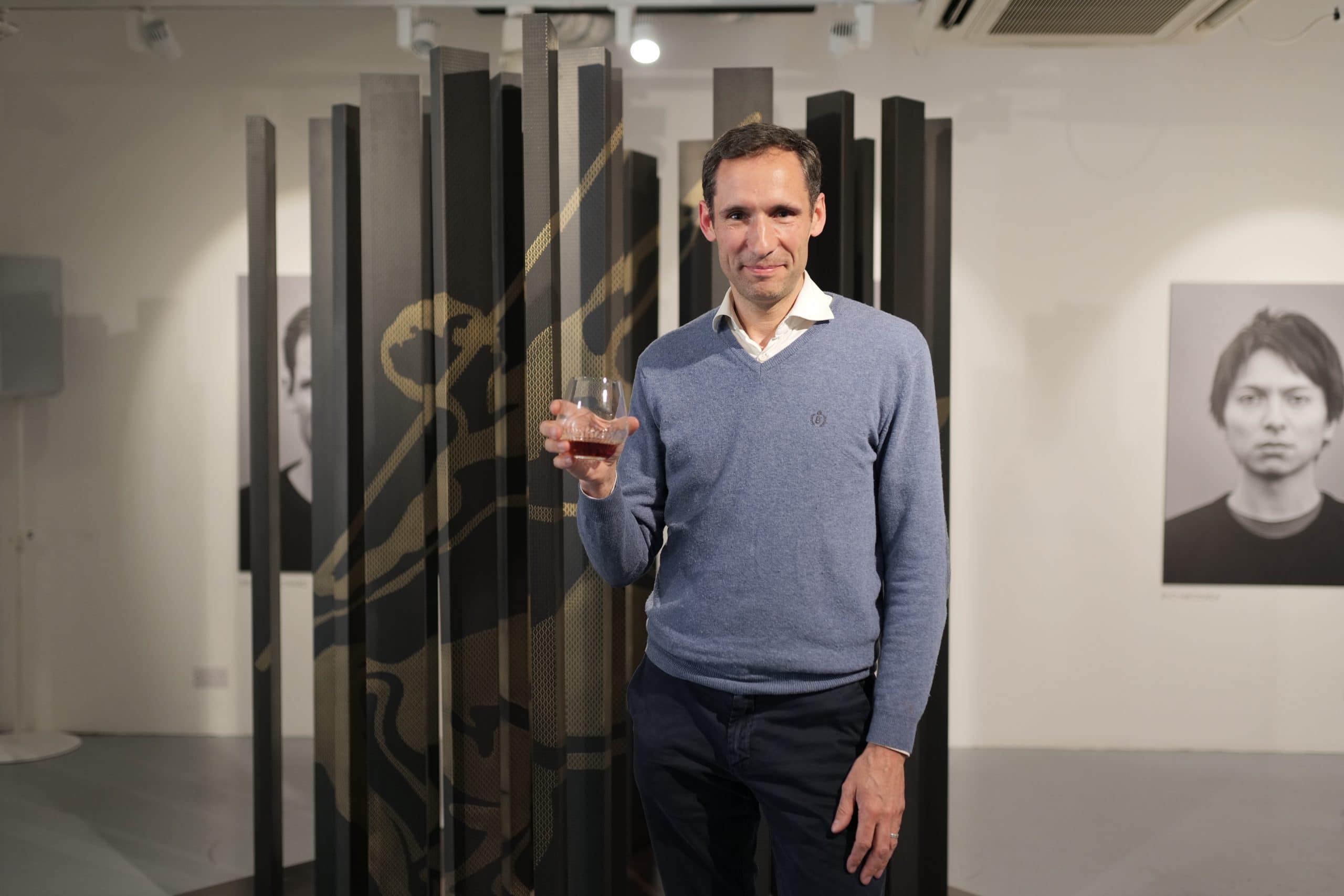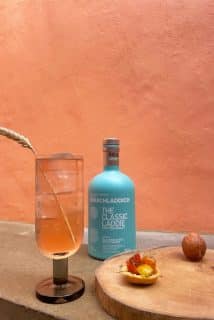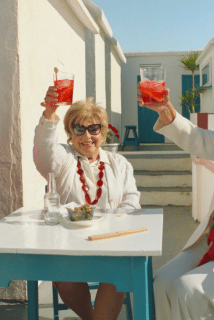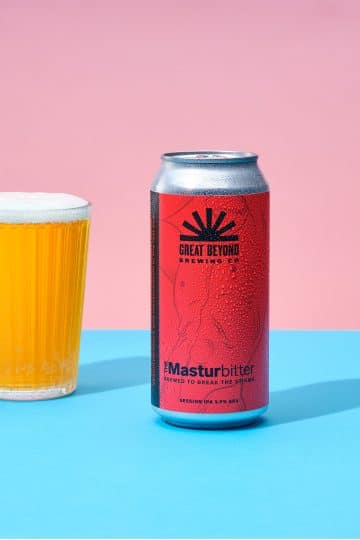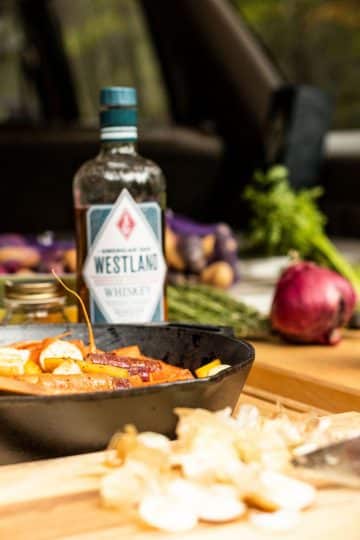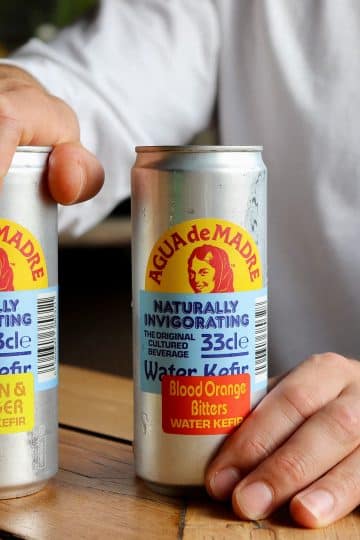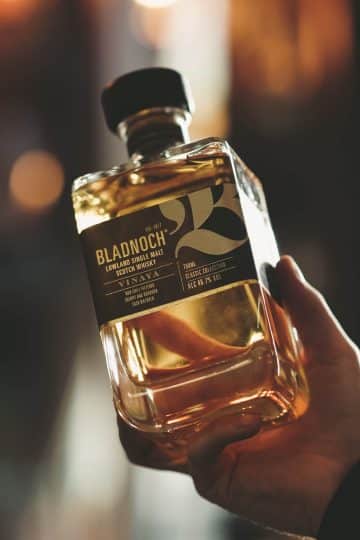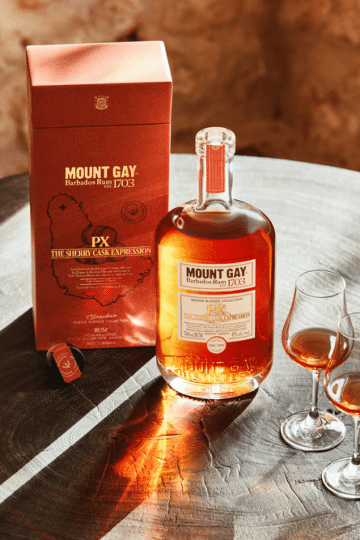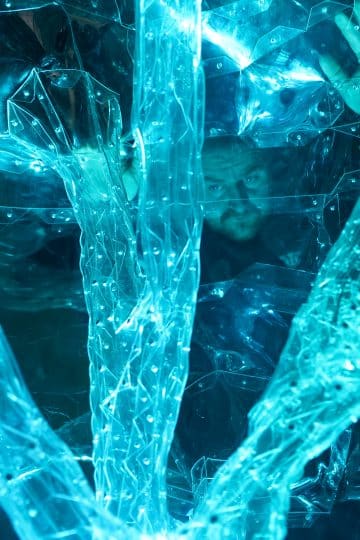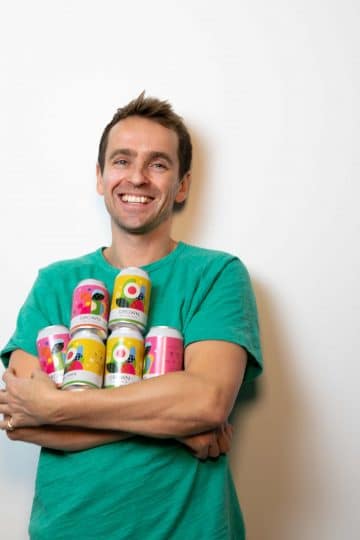Blacksmith turns his hammer to cognac
Drink
The celebrated metalwork artist Steaven Richard is the latest collaborator for Rémy Martin, one who really does go at his work, hammer and tongs.
Steaven Richard is an ironworker, a blacksmith, or as they say in France, an atelier, a master of his own design studio, who makes fine art out of glowing hot metal with hammers and tongs. He perhaps has the coolest job in the world. And with his trademark combination of the traditions of metalworking with artistic experimentation, he was a natural fit for one of Rémy Martin’s collaborations; Steaven worked on a new design for a limited edition bottle of their XO, as well as a one-off art piece which was recently unveiled in London. The piece was really quite incredible, a grouping of tall brass pillars imprinted with a pattern using a rolling mill (usually used for fabric not metal), which from a certain angle revealed the Rémy Martin centaur from its logo. We managed to grab Steaven for a quick chat, and found that both he and the cognac makers have that balance between heritage and innovation which we think is a good model for business and a great philosophy for life in general.
What were the key things you wanted to put into the work?
I saw that in their work they use bronze, as I do in my work, so I wanted to keep that. Secondly, I saw the question of verticality presents itself in Rémy Martin, in the trees, in the vines. Working in verticals would be interesting. And the logo is quite heavy to start with, but here it is completely deconstructed, so it is only revealing itself during the experience. It all comes together like cognac.
What new things did you discover?
The new tools we developed was the rolling mill. This is usually used for big fabrics, not for blacksmiths. But bringing this tool from the industry in the artisanal workshop was a way to bring new possibilities and new knowledge. The texture you can see, is also on the packaging and the bottle.
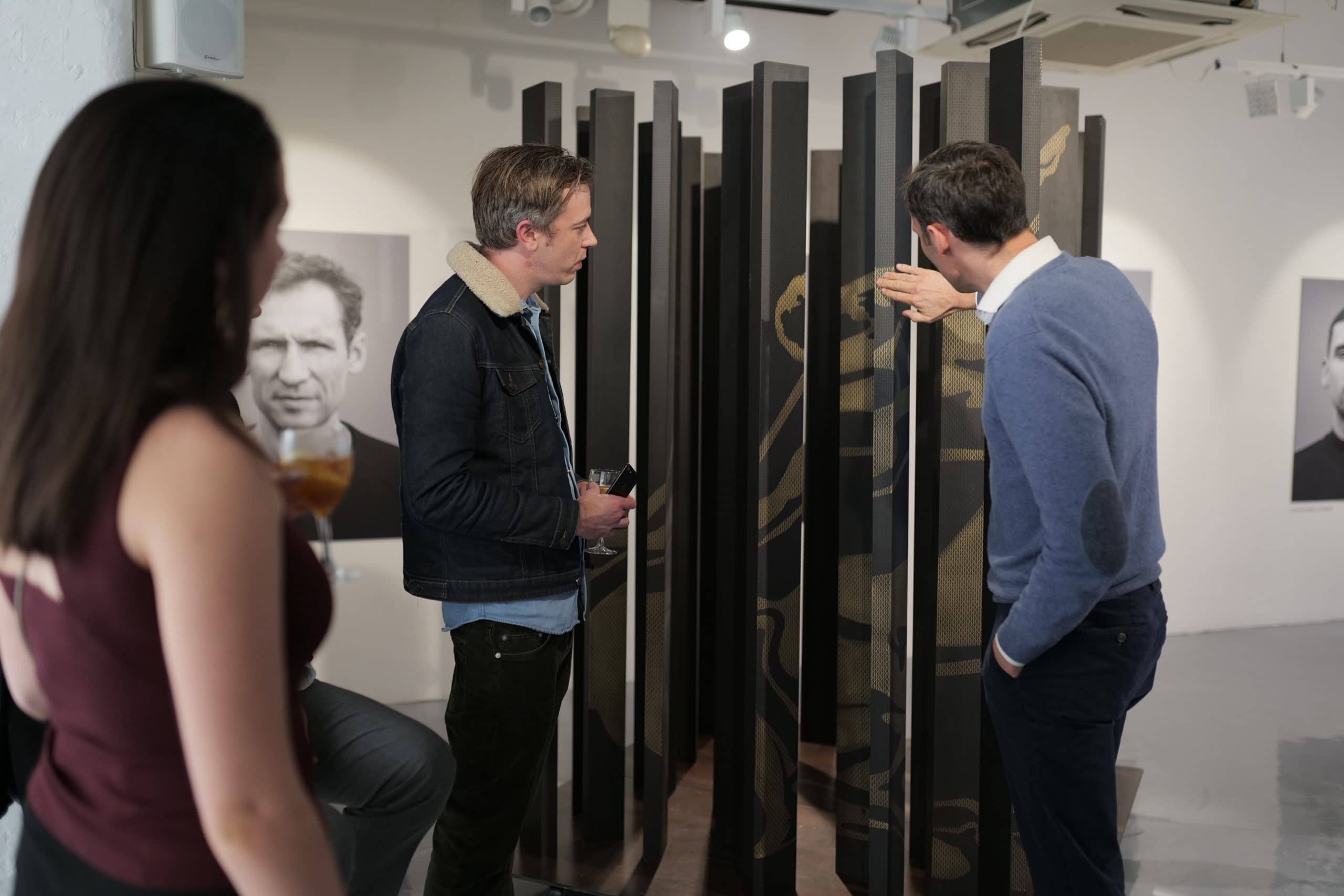
Is it easy working with metal?
To work with metals is like modelling but we have to model with the help of fire. You can’t touch it with your hand but you have tools to model it. Of course metal is a hard partner to work with.
What connections are there between your world and the world of Rémy Martin?
The vines and the tasting tubes are both characterised by their vertical structure and nature, but there’s also the anchoring within the earth, mingled with the romance of the sky and stars — which is one of the House’s themes. The wafts of alcohol remind me of the water vapour that is created during the metalwork process in the atelier. There is also the idea of revitalising yourself within natural surroundings, which is essential for creativity.
Rémy Martin is taking a fresh look at the world around it, much as I strive to do in my own work. The House never stands still, and I particularly appreciated how we worked together as a team, like a family. That’s what I try to create in my atelier as well. A product or work takes on its full meaning when the parts and the whole move together in harmony.
What inspired you at the beginning of the process?
I was inspired by Rémy Martin’s know-how, where art and craftsmanship converge. These are two essential pillars for creation. We require the elements and nature. Art and craftsmanship both appeal to the senses and to our human instincts. You also need a sense of daring and the ability to challenge yourself if you are to step out of your comfort zone and create something that is bigger and more powerful than you could imagine!
You need to know how to master the tools, yet never lose sight of your intuition. That intuition must be your guide throughout the process of creation.
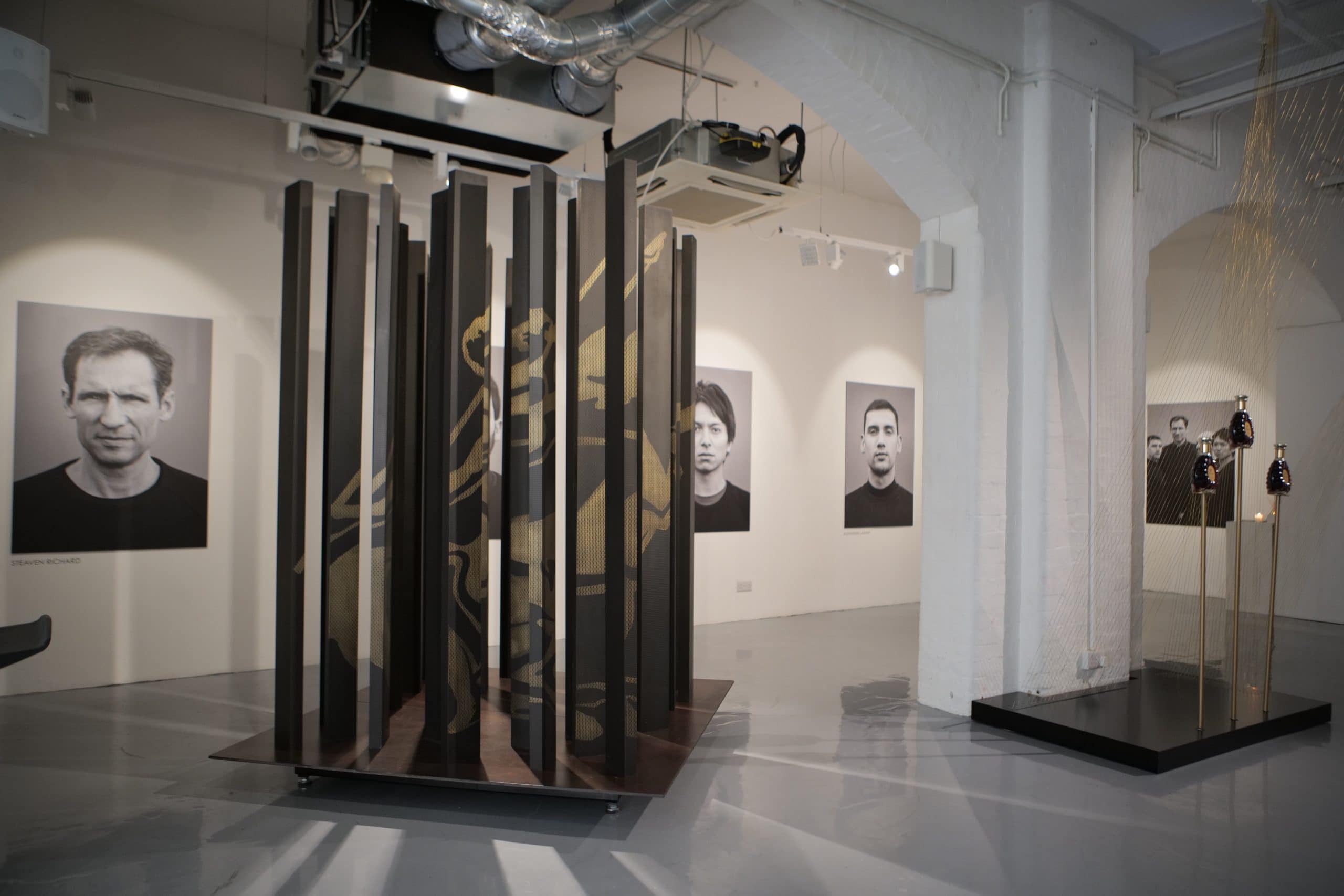
How did you approach the creative process?
I went to Cognac to visit the vineyards and the cellars, where I could learn about each stage of the manufacturing process. Experiencing life at the cooperage and in the vineyards and cellars completely changed how I understood the profession. The patinas on the cognac sampling pallets, from the youngest right through to the oldest, reminded me of the bronze patinas in my atelier.
But what has given me the biggest thrill is working as a team and gradually forging something beautiful together. And that applies to both Rémy Martin and to my atelier; we created a unit and collaborated as a whole on this project. The final work emerged as a result of this collaboration.
What is the connection between the enjoyment of spirits and your art?
My own know-how shares the same connection with the earth, nature and excellence. Keeping your feet firmly rooted on the ground actually allows your imagination to grow. And there’s the idea of verticality again: for me, the vines conjured up the idea of a forest stretching up towards the sky, and from there I thought about working in partnership with the House.
How do you approach your work on a daily basis?
First, I find peace by retreating from the world around me. I move around my subject and the art takes shape, little by little, gradually splitting away from the rest. It’s difficult to put into words exactly how it emerges.
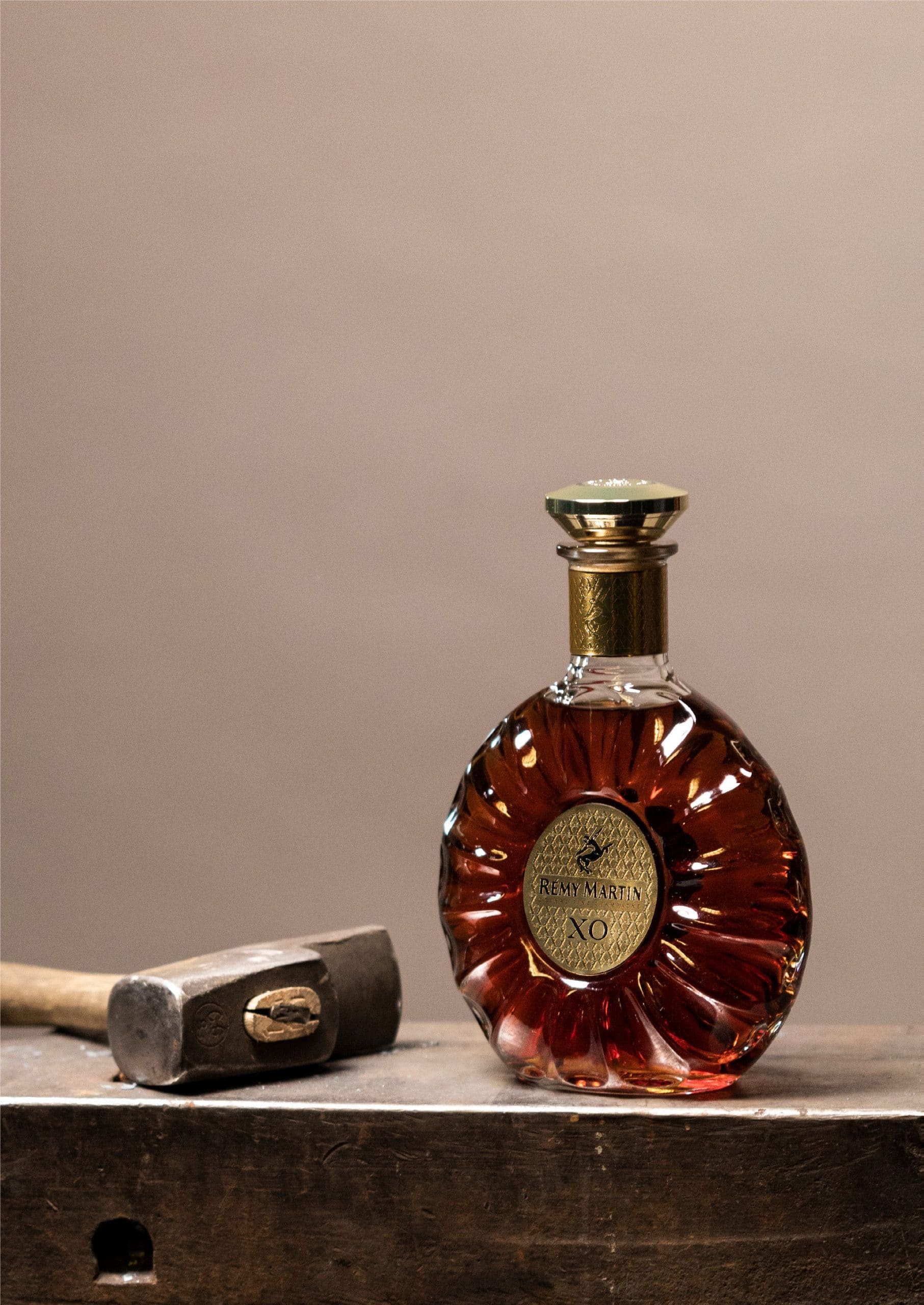
What were the biggest challenges you faced during this collaboration?
Rémy Martin had a concept in mind, which I then contextualised to create harmony between the two worlds. We discussed the ideas in great detail and this collaborative dialogue led to the final creation. The biggest challenge was to incorporate the powerful Centaur symbol, in a well thought out way. We rose to the challenge using anamorphosis: I deconstructed the symbol until it revealed itself in a new light. Inspired by the vines, the sculpture contains a forest of vertical lines, and evokes the French know-how at Rémy Martin. We needed to drive our traditional craftsmanship forward with a bold attitude, and we even surprised ourselves by what finally transpired.
How did the finished work unfold?
Rémy Martin and I share the same values: we have a strong bond with the earth, a special connection with materials and a finely-honed vision of how the process flows. After a long series of productive discussions with the House, I was able to use my vision and expertise as a metalwork artist, and we built this work together. The result is the fruit of hard work and boldness on both our parts. I was incredibly moved when the work was revealed. It is the result of a shared history, a mingling of power and authenticity, and it brings the beauty of craftsmanship to art.
The limited edition bottle designed by Steaven Richard is available exclusively at Selfridges online and in-store.
Trending

Join The Book of Man
Sign up to our daily newsletters to join the frontline of the revolution in masculinity.




